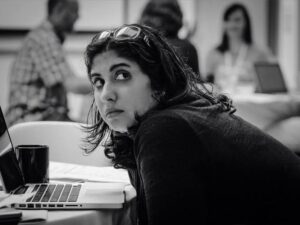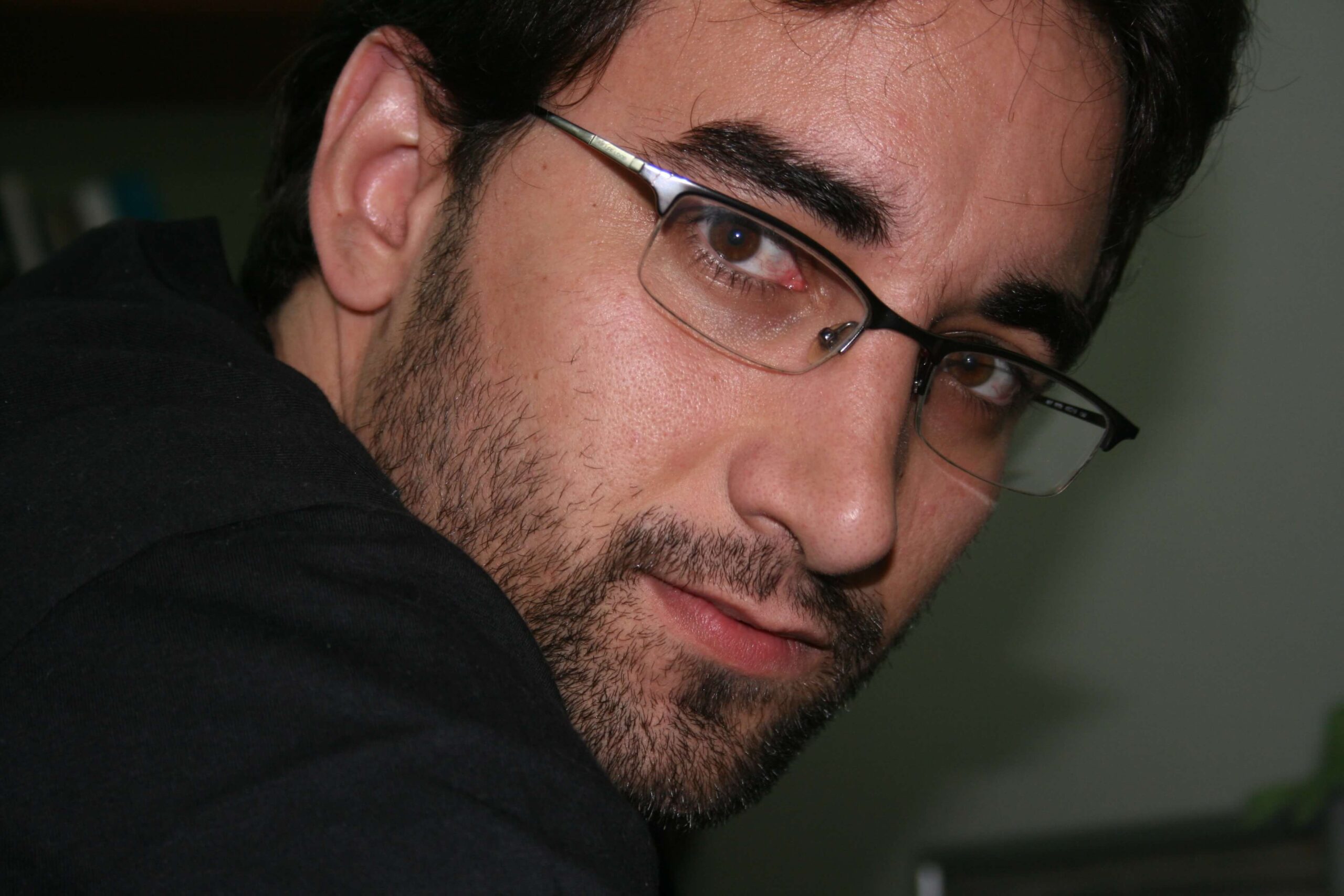Digital Humanities Speaker Series
CoDHR hosts a Speaker Series every academic year in order to bring external scholars in the field to Texas A&M University to meet with faculty, staff, and students and present a lecture or workshop to the community. Each year follows a theme and participating speakers highlight current topics of interest in the field.
Christy Hyman (she/her)
November 6, 2024
Cornell University and UNC Charlotte
Postdoctoral Fellow, "Freedom on the Move", Cornell
Assistant Professor, Environmental Justice, UNC Charlotte
“Slavery, Artificial Life and Free Agents: A GIS Framework of Liberation”
A recording of the talk can be viewed here, and ArcGIS StoryMaps presentation, “Wilderness Isles of Freedom in the Great Dismal Swamp", here.
This talk explores how enslaved freedom seekers are dynamic agents of change shaped by various contingencies in unfreedom. Using computational geography, I will showcase a GIS ontological framework for capturing the evolving meanings of movement and stasis, freedom and struggle, and the integration of these elements along pathways out of bondage.
 Quinn Dombrowski (they/them)
Quinn Dombrowski (they/them)
January 28, 2025
Stanford University
Academic Technology Specialist in Literatures, Cultures, and Languages
“Data You Can Touch: Preserving What You Love on an Uncertain Internet”
A recording of the lecture can be viewed here, and presentation slides here.
Much to the surprise those who imagine the internet simply “backing itself up in the cloud”, everything online is ultimately tied to physical things: servers, power lines, internet cables. Russia’s full-scale invasion of Ukraine in February 2022 made visible the connections between the physical and the digital, as attacks on the power grid jeopardized the stability of websites. Saving Ukrainian Cultural Heritage Online (SUCHO) is an initiative to archive and preserve Ukrainian cultural heritage websites and born-digital content like memes, which circulate throughout the global Ukrainian diaspora to build a narrative around the war. This talk covers SUCHO as a socially-engaged public and digital humanities initiative, how lessons learned from the project have informed subsequent work on web and data archiving in other spheres, and draws upon the #DHmakes movement and a “Data Visualization with Textiles” course at Stanford to speculate on alternate data futures in an age where “putting it online to keep it safe” seems like a decreasingly viable option.
 Lawrence Jackson
Lawrence Jackson
March 27, 2025
Johns Hopkins University
Bloomberg Distinguished Professor of English and History
Director, Billie Holiday Center for the Liberation Arts
"Revisiting Baltimore's African American History: Archives and Curated Digital Public Exhibits"
Co-sponsored with the History of Black Writing at Indiana University, Bloomington.
Luciano Frizzera (he/him)
September 17, 2024
Concordia University
Digital Humanities Postdoctoral Fellow at the University of Waterloo
UX Designer & Web Developer
"Affect, Power, and Subjectivation on Kaggle’s AI Competitions"
What kinds of data and labour mobilization occur in and around the production of machine learning algorithms? What socio-technical conditions are involved in AI development? How do these conditions produce predictive models that shape our sense of self and identity? Over the past decade, the widespread investment in digital infrastructure and the extensive digitization of individual behaviour have provided the basis for rapidly developing predictive models using machine-learning techniques. AI systems datafy our bodies and subjectivity, creating new cartography of biopower based on calculated linkages between incomplete archives, speculative judgments, and simulated futures. From deepfakes and hallucinations to psychopower and spurious correlations, this phenomenon points toward the possibility of using subjective and impersonal materials to reorganize life according to a specific system of power and privileges involving gender, race, sexuality, and social class. My research focuses on Kaggle, the world’s largest data science community, to discuss how code, data, digital infrastructures, crowdsourced labour, and political economy interests are mobilized to produce what I call modes of automatic subjectivation.
 Kate Ozment (she/her)
Kate Ozment (she/her)
October 16, 2024
Case Western Reserve University
Team Leader for Digital Scholarship, Kelvin Smith Library
Co-editor, "Women in Book History Bibliography"
Contributing scholar, "Women’s Print History Project"
"Digital Humanities Praxis from the Classroom to the Library"
A recording of the lecture can be viewed here, and presentation slides here.
Dr. Kate Ozment met virtually with the Digital Humanities Working Group to share her experience as a Digital Humanities Librarian at Case Western Reserve University, and her transition from tenure-track English faculty to the library. This event was open to Texas A&M faculty, staff, and students of all experience and interest levels.
The following are resources that Dr. Ozment shared during her presentation:
See our Building Sustainable Projects page for resources related to this year's theme.
 Jentery Sayers (he/him)
Jentery Sayers (he/him)
November 15, 2023
University of Victoria
Associate Professor, Department of English and Media Studies
"Degrowing Digital Projects"
Presentation slides can be viewed here.
While digital projects in the humanities are frequently associated with innovation, less attention may be paid to their care and maintenance over time. This talk draws from recent research in activity theory and minimal computing as well as allied fields, such as game studies, to address the "degrowth" of digital projects from the labor perspective. First, I outline the motives and trajectories of this perspective, and then I communicate the importance of value-sensitive design to determining three things: 1) a project’s needs and desires, 2) what work is required and from whom, and 3) how to sustain the labor involved. Degrowth aims to reduce computation’s alienating effects in the interests of social organization and collective expertise, and it does so by foregrounding the cultures and habits of digital projects over their technical particulars. These issues matter for the livelihood of practitioners as gig economics and precarious labor become the norm in the technology sector.
 Alison Langmead (she/her)
Alison Langmead (she/her)
February 28-29, 2024
University of Pittsburgh
Clinical Professor, History of Art & Architecture and School of Computing and Information
Director, Visual Media Workshop
"Sustainability in the Age of 'Generative' Computation"
Presentation slides can be viewed here.
In this age of generative computational systems that appear to produce 'human-responsibility-free' images and texts, how can we better identify what it is that we are trying to sustain in our intentional, scholarly, digital work? What constitutes an ethical, productive sustainability practice in a computational environment increasingly populated by machinic outputs masquerading as human creations? How many of our approaches partake of the assumption that the more we retain the better for the machine and not for us humans? This talk will address a number of socio-technical constraints that impact many humanists as they make decisions about how long they want their projects, products, and communities to last.
 Roopika Risam (she/her)
Roopika Risam (she/her)
April 24-25, 2024
Dartmouth College
Associate Professor, Digital Humanities and Social Engagement
Film and Media Studies Department and Comparative Literature Program
Dr. Roopika Risam's research focuses on data histories, ethics, and practices at intersections of postcolonial and African diaspora studies, digital humanities, and critical university studies. She is the author of New Digital Worlds: Postcolonial Digital Humanities in Theory, Praxis, and Pedagogy, and co-editor of multiple volumes, most recently Anti-Racist Community Engagement (2023) and The Digital Black Atlantic (2021). She is the director of the Digital Ethnic Futures Consortium, founding co-editor of Reviews in Digital Humanities, co-PI of Landback Universities, and co-president of the Association for Computers and the Humanities. Dr. Risam is finishing her second book, Insurgent Academics: A Radical Account of Public Humanities (Johns Hopkins University Press), and she is working on a trade book on data and empire. She recently received the 2023 Diversity, Equity, and Inclusion Award from the International Association for Research in Service Learning and Community Engagement.


